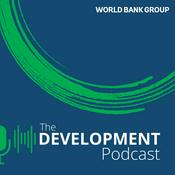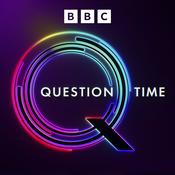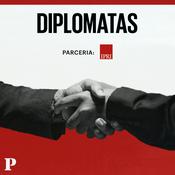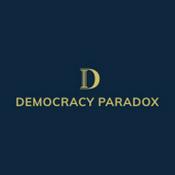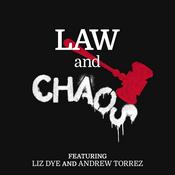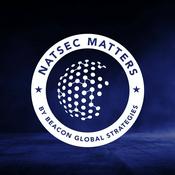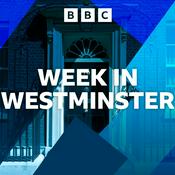186 episódios
Rubio Delivers Munich Security Conference Speech Calling for Return to National Sovereignty Over Global Institutions
22/2/2026 | 2minSecretary of State Marco Rubio delivered a major speech on February 14 at the Munich Security Conference, earning a standing ovation from attendees. According to Michael Barone in the Maui News, Rubio critiqued European policies on mass migration, which he called a crisis destabilizing Western societies, a climate cult impoverishing people through energy policies, and outsourcing sovereignty to international institutions. He emphasized shared history, Christian faith, culture, and heritage between the United States and Europe, urging pride in that common civilization.
Barone notes Rubio referenced the first Munich conference in 1963 amid the Iron Curtain and postwar decisions like the Truman Doctrine and NATO, contrasting them with post-Cold War illusions of a rules-based order that cost the West dearly. Rubio celebrated European contributions to liberty, from the rule of law to figures like Mozart, Dante, and Shakespeare, while highlighting America's European roots, including the cowboy archetype from Spain.
The Voice of St Lucia reports Rubio received an invitation to the CARICOM Heads of Government meeting in St Kitts and Nevis from February 25 to 27. The article suggests his attendance could reset United States-Caribbean ties, focusing on sovereignty, economic resilience, border control, migration proportionality, climate adaptation, and cooperation on Venezuela and Cuba, building on strong trade and security partnerships.
Logos Press by Stephen Holmes describes Rubio's diplomacy as silk-stocking style, echoing Vice President JD Vance's prior criticisms but more diplomatically, prioritizing civilizational blood ties over multilateralism. Holmes highlights Rubio's meetings in Bratislava with Robert Fico and Budapest with Viktor Orban, pro-Russian leaders, and his skip of Ukrainian talks.
The Jerusalem Post states Rubio declared the death of the post-Cold War old world order at Munich, signaling a new era of United States-China rivalry where nation-states regain primacy over global institutions.
Thank you for tuning in, listeners. Please subscribe for more updates. This has been a Quiet Please production, for more check out quiet please dot ai.
For more http://www.quietplease.ai
Get the best deals https://amzn.to/3ODvOta
This content was created in partnership and with the help of Artificial Intelligence AIRubio Declares Old World Order Dead at Munich Security Conference, Calls for Western Nations to Embrace Heritage and National Interests
22/2/2026 | 2minSecretary of State Marco Rubio delivered a powerful speech on February 14 at the Munich Security Conference, earning a standing ovation from attendees. According to Michael Barone in the Maui News, Rubio critiqued European policies on mass migration, calling it a crisis destabilizing Western societies, and condemned what he termed a climate cult and energy policies that impoverish people. He also criticized outsourcing sovereignty to international institutions and massive welfare states. Barone notes Rubio used we, us, and our repeatedly, 69, 11, and 65 times respectively, to frame a shared Western heritage.
Rubio declared the old world order dead, as reported by the Jerusalem Post, marking the end of the post-Cold War era focused on global institutions over nation-states. He invoked history, from the 1963 Munich conference amid the Iron Curtain to postwar decisions like the Truman Doctrine and NATO that rejected decline. Rubio urged Europe to take pride in its Christian roots, rule of law, universities, scientific revolution, and cultural giants like Mozart, Beethoven, Dante, and Shakespeare.
The speech positioned America and Europe as heirs to a common civilization, rebuking anti-colonial narratives and emphasizing duty over self-flagellation. Barone in the Maui News highlights Rubio celebrating explorers like Christopher Columbus and American roots from European settlers, countering modern critiques.
In related diplomacy, Sheikh Abdullah bin Zayed Al Nahyan, UAE Deputy Prime Minister and Foreign Minister, met Rubio in Washington to discuss strategic ties and regional issues, per UAE Ministry of Foreign Affairs reports. This follows joint Arab and Islamic condemnation of separate US ambassador remarks on Israeli control over Arab territories, which they said contradict President Trumps peace vision.
Rubios address signals a shift toward national interest in a multipolar world dominated by US-China rivalry, with Europe urged to defend itself.
Thank you listeners for tuning in, and please subscribe for more updates. This has been a quiet please production, for more check out quiet please dot ai.
For more http://www.quietplease.ai
Get the best deals https://amzn.to/3ODvOta
This content was created in partnership and with the help of Artificial Intelligence AI- Secretary of State Marco Rubio has been at the center of several major diplomatic initiatives this week as the Trump administration navigates complex international challenges.
Rubio delivered a keynote address at the 62nd Munich Security Conference, where he conveyed a stark message to NATO allies. According to coverage of the event, Rubio declared that the post-World War II international order has ended and a new era of what he termed wrecking ball politics has begun. The conference theme, Under Destruction, underscored the gravity of his remarks about shifting global power dynamics.
On the Iran nuclear front, the Secretary of State is preparing to travel to Israel next week to brief Prime Minister Benjamin Netanyahu on recent developments. According to Trump administration officials, Rubio is scheduled to meet with Netanyahu on February 28. The briefing comes as the United States and Iran have conducted two rounds of indirect talks regarding Iran's nuclear program. Iranian officials have agreed to prepare a written proposal addressing American concerns raised during this week's Geneva discussions. Vice President JD Vance indicated the talks showed progress in some areas, though the administration has set red lines that Iran has not yet acknowledged.
Meanwhile, according to reporting from Axios, Rubio has been engaged in discreet conversations with Raul Guillermo Rodriguez Castro, grandson of Cuba's de facto ruler Raul Castro. These discussions bypass official Cuban government channels and reflect the Trump administration's view of the elder Castro as the genuine power broker on the island. A senior Trump administration official characterized these as conversations concerning the future rather than formal negotiations. The discussions suggest potential openness to future arrangements, though American officials maintain that regime replacement remains the stated position.
The Secretary of State also addressed policy toward Ethiopia in communications sent to his office this week, with letters urging reassessment of diplomatic frameworks in the Horn of Africa region.
Additionally, Rubio met with Vietnamese Foreign Minister Le Hoai Trung at the State Department on February 19, continuing America's diplomatic engagement across multiple regions.
These developments reflect Rubio's active diplomatic schedule as he manages pressing international issues from Iran nuclear negotiations to reshaping relationships with longtime adversaries in the Western Hemisphere.
Thank you for tuning in. Be sure to subscribe for more updates on international affairs and diplomatic developments. This has been a Quiet Please production. For more, check out Quiet Please dot AI.
For more http://www.quietplease.ai
Get the best deals https://amzn.to/3ODvOta
This content was created in partnership and with the help of Artificial Intelligence AI Headline: "Secretary Rubio Secures Multibillion-Dollar Nuclear Deal in Hungary, Navigates Global Tensions"
17/2/2026 | 2minSecretary of State Marco Rubio traveled to Budapest, Hungary, on February 16, 2026, where he signed a U.S.-Hungary Intergovernmental Agreement on Civil Nuclear Cooperation with Hungarian Foreign Minister Péter Szijjártó. The U.S. Department of State announced this deal, along with another signed on February 15, represents over fifteen billion dollars in business opportunities for American vendors to build new nuclear power plants in Central Europe, according to NucNet news. During a joint press availability with Hungarian Prime Minister Viktor Orban at the Carmelite Monastery, Rubio highlighted the strong personal relationship between Orban and President Trump, crediting it for decisions like sanctions waivers on Hungarian Russian energy purchases. The State Department transcript quotes Rubio saying this partnership aligns national interests and counters perceptions of Hungarys isolation, pointing to seventeen recent investments.
Just days earlier, at the Munich Security Conference, Rubio delivered a speech urging Europe to adapt by boosting defense spending, reforming welfare amid aging populations, and addressing migration as a threat to cultural cohesion. The Atlantic Council reports Rubio emphasized shared history and values with Europe, declaring we belong together, while critiquing overreliance on global trade and what he called a climate cult. Byline Times notes his remarks contrasted sharply with past U.S. leaders like Kennedy and Reagan, focusing on Western expansion and rejecting naive rules-based order notions. Rubio avoided direct Ukraine commitments in Munich, worrying some European leaders per the Atlantic Council, but stressed U.S. efforts to end the war through talks, as he told reporters in Budapest. The U.S. Department of State transcript has Rubio stating America is the only nation able to get both sides to negotiate, aiming for a quick peaceful resolution without imposing deals.
These moves signal Rubios active diplomacy, blending economic deals with tough transatlantic messaging amid global tensions.
Thank you listeners for tuning in, and please subscribe for more updates. This has been a quiet please production, for more check out quiet please dot ai.
For more http://www.quietplease.ai
Get the best deals https://amzn.to/3ODvOta
This content was created in partnership and with the help of Artificial Intelligence AIRubio Signs Major U.S.-Hungary Nuclear Deal, Boosts American Vendors in Central Europe
17/2/2026 | 2minSecretary of State Marco Rubio wrapped up a key European trip on February 16, 2026, signing a major U.S.-Hungary intergovernmental agreement on civil nuclear cooperation with Hungarian Foreign Minister Péter Szijjártó in Budapest. The U.S. Department of State announced this deal, along with others signed on February 15 and 16, creates over fifteen billion dollars in business opportunities for American vendors in Central Europe's nuclear power plants, according to NucNet reports. During a joint press availability with Hungarian Prime Minister Viktor Orbán, Rubio highlighted the strong personal ties between Orbán and President Trump, crediting them for sanctions waivers on Russian energy purchases that support Hungary's economy. The State Department transcript quotes Rubio saying the U.S. wants Hungary to succeed as long as Orbán leads, noting seventeen investments as proof against claims of Hungary's isolation.
Rubio emphasized U.S. efforts to end the Ukraine war quickly, stating America is the only nation able to bring both sides to talk at technical levels, unlike the United Nations or European countries. He stressed no imposition of deals, just help to stop a destructive conflict that should have ended long ago. On February 17, Rubio's public schedule includes meetings and briefings at the State Department and White House, per State.gov.
Earlier at the Munich Security Conference around February 14, Rubio's speech drew mixed reactions. Fox News praised his charm offensive with European allies, easing tensions from Trump's tariff threats and Greenland moves, while reaffirming transatlantic bonds with the line, we belong together. He criticized European immigration and climate policies, and the United Nations' role in Ukraine and Gaza. The Parliament Magazine reports some Europeans saw it as MAGA demands on Washington's terms, deepening doubts despite softer tone than Vice President JD Vance's prior year speech. Modern Diplomacy called it a recalibration urging Europe toward partnership in a reshaped world.
Listeners, thank you for tuning in. Please subscribe for more updates. This has been a quiet please production, for more check out quiet please dot ai.
For more http://www.quietplease.ai
Get the best deals https://amzn.to/3ODvOta
This content was created in partnership and with the help of Artificial Intelligence AI
Mais podcasts de Ciência política
Podcasts em tendência em Ciência política
Sobre Secretary of State - 101
This is your What does the US Secretary of State do, a 101 podcast.Explore the captivating lives and careers of the Secretaries of State with the "Secretary of State Living Biography" podcast. Updated regularly, this biographical series delves into the personal and professional journeys of these influential figures in global diplomacy and national policy. Each episode offers insightful stories, historical context, and expert commentary, making it a must-listen for history enthusiasts and political aficionados alike. Discover the people behind the pivotal decisions that have shaped U.S. foreign relations and global affairs through this engaging podcast.For more info go to https://www.quietplease.aiCheck out these deals https://amzn.to/48MZPjs
Sítio Web de podcastOuve Secretary of State - 101, World Bank | The Development Podcast e muitos outros podcasts de todo o mundo com a aplicação radio.pt
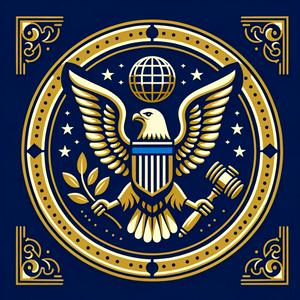
Obtenha a aplicação gratuita radio.pt
- Guardar rádios e podcasts favoritos
- Transmissão via Wi-Fi ou Bluetooth
- Carplay & Android Audo compatìvel
- E ainda mais funções
Obtenha a aplicação gratuita radio.pt
- Guardar rádios e podcasts favoritos
- Transmissão via Wi-Fi ou Bluetooth
- Carplay & Android Audo compatìvel
- E ainda mais funções


Secretary of State - 101
Leia o código,
descarregue a aplicação,
ouça.
descarregue a aplicação,
ouça.


